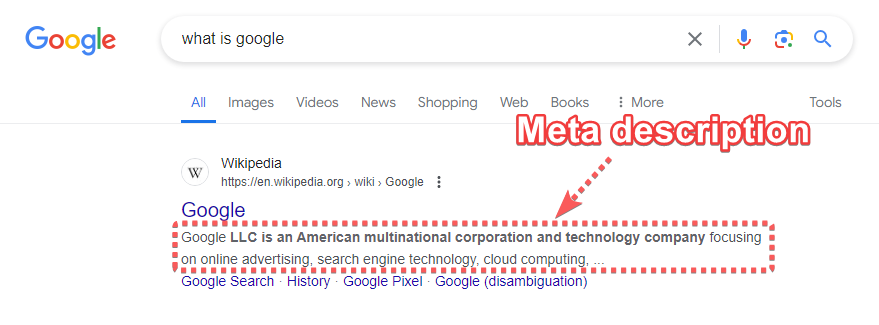Effective SEO strategies rely heavily on SEO-based content creation. To produce high-quality content, it’s essential to write with clarity and a user-first perspective. Many people wonder, “What sets SEO articles apart from regular ones?” and “How do I write in a way that search engines will value?”
The basics of SEO writing can be captured by understanding just four key concepts. This article will explain SEO writing techniques in an easy-to-understand manner, including how to outsource SEO writing and the importance of content rewriting.
Whether you’re a beginner or advanced in SEO, this guide will help improve your site’s search rankings. Read on for a comprehensive understanding of successful SEO practices.
Basic Concepts of SEO Writing
SEO-optimized writing, often called SEO writing, involves creating content with search engine optimization in mind. This type of writing not only provides clear and valuable information to users but also ensures that search engine crawlers can accurately interpret the content.
Moreover, incorporating unique content not found on competitor sites can enhance a website’s expertise and authority. Let’s delve deeper into the basic concepts of SEO writing.
Importance of Clarity for Users
A common feature of effective SEO writing is the focus on creating content that is easy for users to understand. Google’s search algorithm prioritizes user-first content when ranking pages.
In essence, websites that offer valuable and easily digestible information to users receive higher rankings and appear at the top of search results.
Even high-quality content can fail to rank well if it is not presented in a user-friendly manner.
In SEO writing, using clear language to convey information is crucial. Specific techniques, such as the PREP method, can help organize and present information in a clear, logical order.
What is the PREP Method?
The PREP method stands for Point, Reason, Example, Point. It organizes content in a way that makes it easy for readers to understand by using straightforward language and concise summaries, which helps search engines like Google to rank the content higher.
- P = Point (Conclusion)
- R = Reason (Reason)
- E = Example (Example, Case)
- P = Point (Repeat Conclusion)
Communicating with Search Engine Crawlers
Effective SEO writing must communicate not only with users but also with search engine crawlers. Crawlers read web page content and use this information to determine rankings through Google’s algorithms.
Therefore, SEO writing should be structured with clear titles and headings, making it easy for crawlers to understand and rank the content.
Key practices include following HTML heading tag rules and strategically incorporating keywords throughout the text.
Incorporating Unique Content
Unique content is critical for SEO writing, as it helps distinguish your site from competitors. Google values original content and rewards it with higher rankings, so including high-quality, unique content can improve search visibility.
To create unique content, begin by analyzing competitor sites to understand the information they offer. Then, identify gaps or unique perspectives your site can provide.
For example, leveraging your expertise for detailed explanations, using data to support claims, or incorporating visuals can enhance the uniqueness and value of your content.
Enhancing Expertise and Authority
Advanced SEO writing involves boosting a site’s expertise and authority, which Google evaluates using the E-E-A-T (Experience, Expertise, Authoritativeness, Trustworthiness) framework. High expertise and authority can improve search rankings.
To enhance expertise, provide clear and accurate information within your specialized field. Use case studies, cite recent research, and ensure your content is well-researched and credible.
Additionally, acquiring citations or backlinks from reputable sites can further enhance your site’s authority. Getting recognized and cited by other media can significantly boost your site’s credibility and improve its SEO performance.
How to Write for Effective SEO
There are several common points in SEO writing that lead to successful results.
Identify Persona and Needs
Before starting SEO writing, it is crucial to clearly define the persona and needs of the target readers. Identifying the target allows for better anticipation of the information they seek, making it easier to provide clear answers to their expected needs.
A persona is a detailed representation of the target reader’s characteristics and behavior patterns, including age, gender, occupation, hobbies, and values. Defining a persona clarifies who the article is for.
On the other hand, needs refer to the desires to solve certain anxieties or problems. Understanding these needs allows you to provide accurate information, creating valuable content for users and earning high evaluations from search engines.
Research Top-Ranking Competitor Sites
Researching competitor sites is essential for SEO writing. Particularly in SEO writing, it is necessary to differentiate your content by researching articles from competitor sites.
When conducting research, search for the target keyword to see what appears at the top. Check what information is provided, which keywords are frequently used, how titles and headings are structured, and how content is presented.
Researching top-ranking competitor sites helps identify what is needed in your content and highlights your site’s strengths and differentiators.
Create Titles and Headings Based on Keywords
Creating compelling titles and SEO-based headings is vital in SEO writing. Attractive titles encourage clicks from search results, while SEO-optimized headings help search engine crawlers evaluate the content accurately.
Titles should concisely represent the page content and include keywords as close to the beginning as possible. Use copywriting techniques to make titles that users want to click on.
Headings should structurally represent the page content, giving readers an organized impression. Including keywords in headings helps crawlers understand the page content accurately.

Meta descriptions, the 80-character page summaries shown in search results, attract users and increase click rates.
Write Content Based on Heading Structure
SEO writing should be based on a structured outline. Writing from start to finish without headings is not recommended.
Ideally, SEO-optimized articles should allow readers to understand the content by just reading the headings. In SEO writing, organizing information under headings to make it easy for users and crawlers to understand is crucial.
Including more hiragana makes the text more readable. The ideal ratio is 70% hiragana, 20% kanji, and about 10% katakana.
Avoid using pronouns like “this” or “that” and avoid abbreviations like “consultant” to “consult” to ensure clarity in SEO writing.
Enhance Readability with Emphasis and Tables
After completing the SEO writing, using emphasis, tables, and bullet points to organize information and enhance readability is important. Adding emphasis and tables makes the article more user-friendly than plain text.
Readable articles are well-received by both users and crawlers, making non-textual elements crucial in SEO writing.
Tables and bullet points make the content dynamic and less monotonous, keeping readers engaged.
- Examples of Emphasis and Lists
-
- Bold text
- Underlines
- Bold + Marker
- Bold + Color
- Example of Bullet Points
-
Bullet points list unordered items or summarize section overviews.
- Topic A
- Topic B
- Topic C
- Example of Numbered Lists
-
Numbered lists convey ordered steps or procedures.
- Identify user needs and define personas.
- Analyze top articles for required information.
- Create high-quality articles with original content.
- Example of Tables
-
Tables, also known as grids, convey multiple elements from various perspectives clearly, often used for comparative explanations.
Item Benefits Drawbacks Service A Service A Benefits Service A Drawbacks Service B Service B Benefits Service B Drawbacks Service C Service C Benefits Service C Drawbacks
Following these steps and techniques ensures effective SEO writing that meets user needs and achieves better search engine rankings.
How to Rewrite for Effective SEO
SEO writing doesn’t end with publishing an article. Regular rewriting is necessary to maintain top rankings, which involves updating content and verifying the effectiveness of SEO measures. Here are detailed tips for effective rewriting to maintain high rankings:
Regularly Check Rankings and Traffic
After publishing an article based on SEO writing, regularly check its ranking and traffic. Articles that haven’t improved in ranking after a certain period or those with high rankings but low click-through rates (CTR) may need rewriting.
If the ranking is not improving, review the title, headings, and content for a possible complete rewrite. For articles with high rankings but low CTR, rewriting the title may significantly improve performance.
Include the Latest Information
When rewriting for SEO, it’s crucial to include the latest information. Search engines evaluate pages based on the freshness of their content. Leaving outdated information can lower a page’s credibility and ranking. Regularly check industry trends and news to update articles accordingly.
Incorporating newly published research findings or statistical data also helps maintain the content’s freshness and reliability.
Verify the Effectiveness of Rewriting and Apply the PDCA Cycle
After rewriting, it’s important to verify its effectiveness and apply the PDCA (Plan-Do-Check-Act) cycle. Use tools to check how conversion rates (CVR), traffic, and rankings have changed post-rewrite. This helps identify content favored by search engines and improves future SEO writing.
- Plan: Set the purpose and goals for rewriting.
- Do: Execute the rewrite.
- Check: Evaluate the effectiveness of the rewrite by checking changes in ranking and traffic.
- Act: Based on the evaluation, create a new action plan. Apply successful methods to other pages and revise the
How to Outsource SEO Writing for Efficiency
While it’s possible to handle SEO writing in-house, outsourcing can enhance efficiency. By hiring writers or SEO consultants with specialized knowledge, you can create high-quality content that strengthens your SEO strategy. Here’s a detailed look at how to outsource SEO writing effectively:
Outsourcing Article Creation to Web Writers
One way to streamline SEO efforts is by outsourcing article creation to web writers. Skilled SEO writers can produce content that ranks well in search results. Many companies use platforms like Cloudworks or Lancers, or rely on staff referrals to find suitable writers.
However, freelance writers vary in quality and communication skills, potentially leading to inconsistent content and missed deadlines. This requires careful management and oversight compared to specialized SEO firms.
Hiring Web Design or SEO Consulting Firms
For high-quality SEO support, consider hiring web design or SEO consulting firms. These professionals offer stable SEO writing quality, keyword selection, and comprehensive SEO strategy support. They stay updated with the latest SEO trends and ensure consistent content quality for your site.
If your time or resources are limited, or you seek deeper SEO insights, hiring a web design or SEO consulting firm is recommended.
Summary
In this post, we’ve covered the fundamental principles of SEO writing, practical writing methods, tips for effective rewriting, and ways to outsource writing tasks.
SEO trends evolve rapidly, with search engine algorithms continuously updated, requiring ongoing adjustments. If maintaining consistent SEO in-house is challenging, outsourcing to experts can be a viable option.
At MASS DRIVER, we prioritize business growth by providing SEO strategies directly linked to increased revenue. We optimize strategy formulation with the latest algorithm analyses and offer swift, flexible responses. If you’re considering SEO measures, feel free to consult with us.




